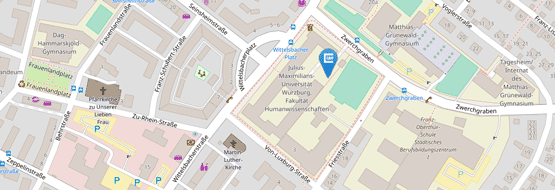Workshop: The Challenge of Gender

In July 2023, the ICAS:MP workshop "The Challenge of Gender" took place in Würzburg. Researchers from India and Germany as well as international guests came together to discuss questions of gender with an interdisciplinary approach. The Institute of Political Science and Sociology at the University of Würzburg has been a part of this collaboration in the framework of the International Centre of Advanced Studies Metamorphoses of the Political (ICAS:MP) for several years.
The workshop took place on 7 and 8 July 2023 at Burkardushaus in Würzburg with a keynote speech and reception in the Würzburg Residence. After welcome addresses by the Chancellor of the University of Würzburg, Dr. Uwe Klug, as well as by Prof. Jörg Gengnagel and Prof. Elisabeth Schömbucher-Kusterer from the Chair of Indology, the keynote speech by Dr. Rainer Herrn (Charité Berlin) about “Trans* Identities in Historical Perspective” in the Würzburg Residence set an enriching impulse for the panels. In the first panel, Indo-German researchers discussed the topic “Embodying Gender. Conversations across Identities" and talked about the affirmative approach to transition, social media controversies on gender, narratives about bodies in transition and queer representation in India.
Panel: Gender, Violence and the Complexities of Law
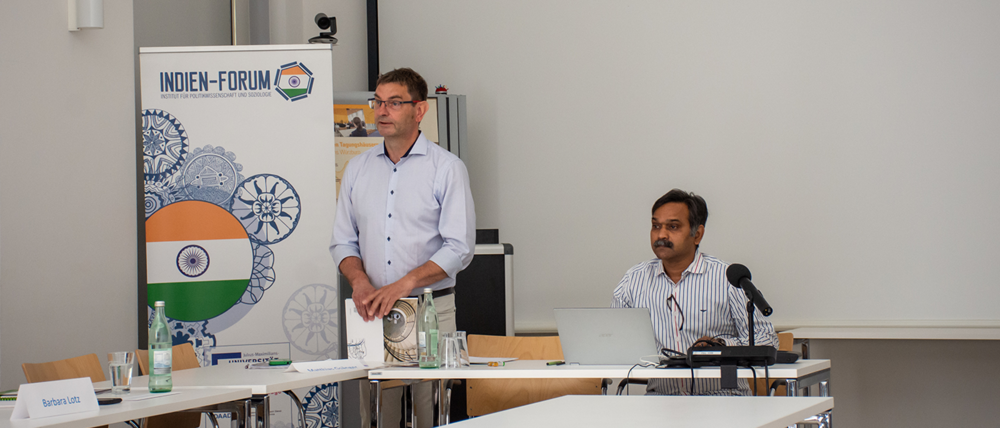
The second panel "Gender, Violence and the Complexities of Law" was co-hosted by the Department for Political Theory from the Institute of Political Science and Sociology. Dr. Matthias Gsänger from IPS and Dr. Krishna Swamy Dara from Jamia Millia Islamia University New Delhi chaired the panel.
First, Jayna Kothari (Centre for Law and Policy Research, Bengaluru) shared her thoughts regarding the topic “Gender, Law and Power: How the Law fails Trans Persons in India” and especially underlined the importance of medical reassignments.
Jordan Bos (Flagler Collage St. Augustine, USA) then spoke about “Culture, law, and violence against women in Germany”. She set the impulse for an interesting discussion about the comparability of the USA, Germany and other European countries regarding these phenomena and the role of religious identities.
Robert Küster (Criminological Research Institute of Lower Saxony) talked about “The regulation of prostitution in Germany” and presented the current results of an ongoing research project in which the German prostitution protection law is evaluated. As especially important aspects, he underlined the development during the pandemic and the challenges for researchers regarding neutrality, access to the field, access to marginalized groups and high requirements for data privacy.
Panel: International Organizations and the Promotion of Gender Equality
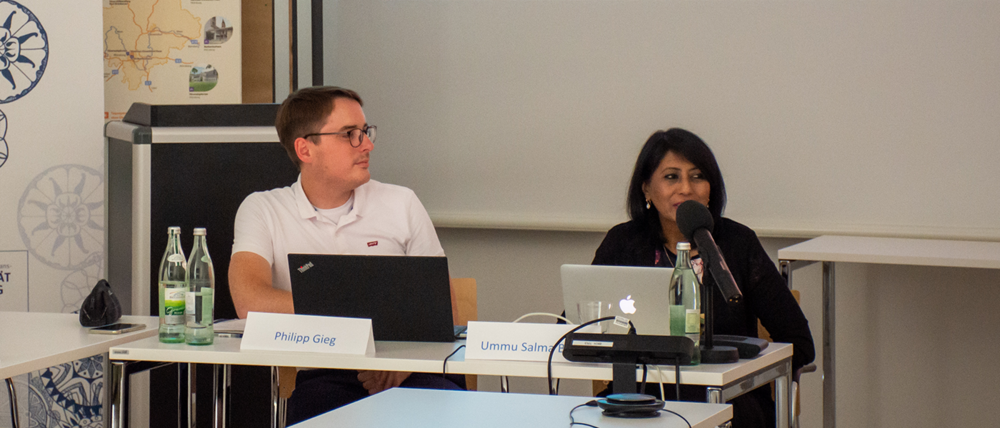
This was followed by the third panel "International Organizations and the Promotion of Gender Equality", covened by Dr. Philipp Gieg from the Chair of International Relations and European Studies at IPS and Prof. Ummu Salma Bava from Jawaharlal Nehru University New Delhi. The panel was building on the workshop “Listen to the Global South! Uncovering the Roles of Southern Actors in Writing Global Gender Norms”, held virtually in December 2021, where the roles of Southern actors in writing global gender norms were discussed. This time the panel shifted the focus to the connection between gender norms and international organizations.
The panel was introduced by Dr. Philipp Gieg and Prof. Ummu Salva Bava and chaired by Prof. Dr. Manuela Scheuermann, Interim Chair of International Relations and European Studies at Würzburg University. As a digital participant, Prof. Soumita Basu from South Asian University New Delhi, one of the leading scholars for gender, peace and security gave a talk about the current state of “The United Nations and Gender Equality”. In this context, among others, the question of the role of UN Women and its effectiveness was discussed, and she questioned if the idea of just adding more female peacekeepers or encouraging women in important positions to participate in decision processes would have a higher impact.
Prof. Ummu Salma Bava shared her thoughts about “Gender Equality and Feminist Foreign Policy”. She raised the question of how a gender-balanced discourse could be established. The difference between the concepts of human security and Feminist Foreign Policy was discussed as well as the question of how innovative and transformative this concept really is.
Anja Zürn, researcher and Ph.D. candidate at IPS, widened the perspective to the interactions between gender and climate policy. Her talk about “The Gendered Nature of the European Green Deal: How an International Organization Shapes the Understanding of Gender Equality in its Climate Policy” was followed by a discussion about the empirical insights and the gender perspective in global climate policy in general.
Finally, Dr. Siddharth Tripathi, Senior Research Fellow at the University of Erfurt, raised the question of how to recognize actors from the Global South in his talk “Norms and Hierarchies in International Politics: Contestations from the Global South”. In this context, questions of representation, balance of power and the role of norm contestations in international institutions were discussed.


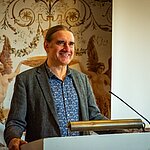
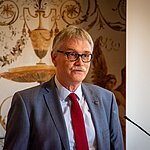
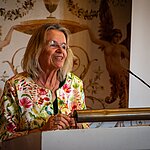
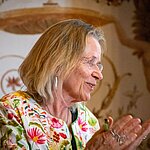

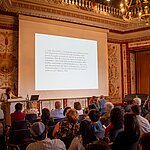
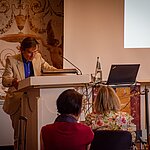
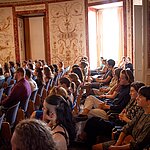
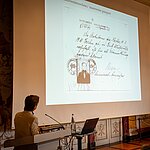
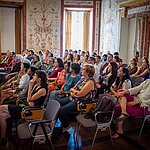

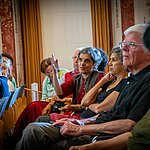

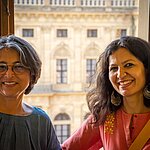



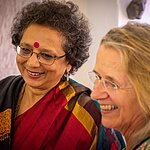
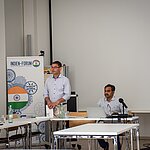
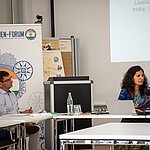
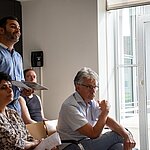
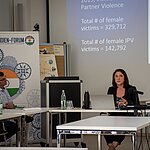
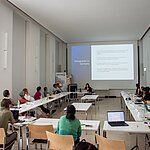
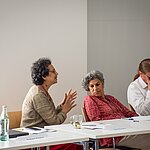
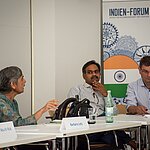
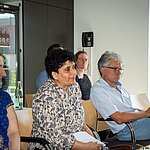
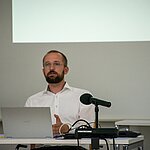
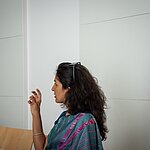
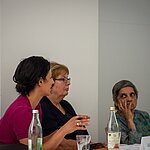
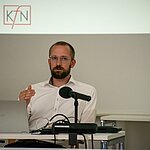
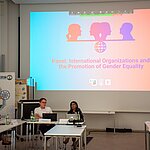
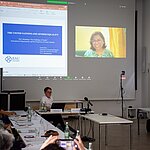
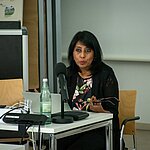
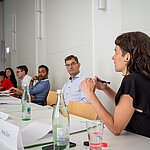
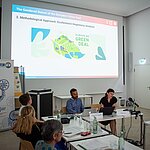
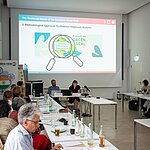
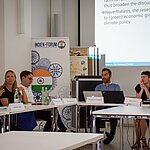
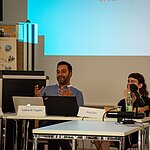
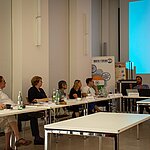
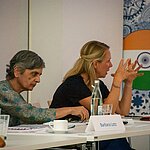
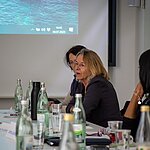
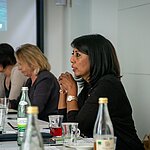
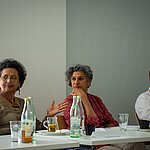
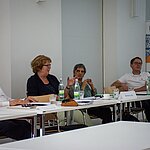
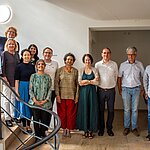
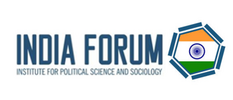
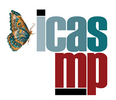
![BMBF_CMYK_Gef_M [Konvertiert]](/fileadmin/_processed_/e/9/csm_BMBF_gefoerdert_2017_en_9eced2eb76.jpg)
